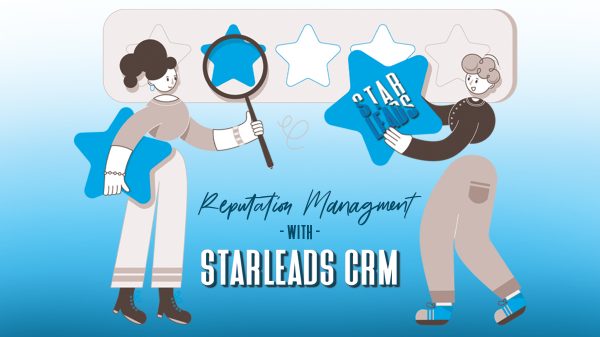
14 Digital Marketing Solutions to Grow Your Business
14 Essential Digital Marketing Solutions to Boost Your Business Growth

Below are 9 tactics for local online reputation management that we believe every company should adopt, categorized into four groups: monitoring, generating, engaging, and maintaining. Then, we offer some suggestions on how to employ these tactics over a six-month period!
In this post, we’ll detail how to boost your Google reviews, improve your online reputation, and establish a long-term reputation management strategy for your online business’s reputation. It is important to keep track of how your company is perceived by customers and potential clients because reputation is deeply connected to customer satisfaction. Many customers having the same positive thoughts and words about you means you have a favorable reputation.
You must realize that to boost your standing, you need not only enhance the consumer experience but also do so in a way that touches customers on an emotional level.
There are numerous ways to improve your business’s online reputation. You should use robust online reputation management techniques to improve your overall reputation, in addition to focusing on improving the customer experience.
Reputation management is a method of managing online reviews and comments to protect or improve a company’s reputation.
Monitoring, generating, and responding to customer engagement across multiple review sites in order to improve brand reputation is referred to as reputation management.
Every business should consider the following 9 local online reputation management strategies, focusing on four categories: monitoring, generating, engaging, and maintaining. Here is a quick overview of how to put these tactics into action over the next six months!
It’s crucial to keep an eye on your review platforms (Google, Facebook, and industry-specific sites). Your reputation lives on these platforms. Your customers form opinions about your business as they browse review platforms online. It’s important to know what your clients are saying about you.
Monitoring online feedback is a time-consuming task for every company, particularly for multi-location ones. Thankfully, you may choose from several options to monitor review platforms and customer feedback in an efficient manner.
An in-house team assessing online comments might be a suitable option, provided that you have the personnel for it. However, this would require a lot of time. Review management might lower their performance in other aspects of the business if it is not their primary occupation.
It’s now simple to outsource and employ a managed service to monitor and respond to your review content. Your company doesn’t have to invest time or get distracted reviewing, you just get the benefits. A good CRM software like StarLeads can integrate your review platforms and make the process much more efficient and convenient.
Google Alerts can be an effective method to keep track of your company’s reputation and related subjects online, as you will be notified whenever your firm is mentioned in the news or other places.
Having your team be notified whenever your business receives negative press is often beneficial. Having a plan in place to immediately respond rather than being caught off guard is often beneficial.
The collective ire of non-customers and readers of bad press articles is surging against companies and employees, particularly in this era of cancel culture. A Google alert will help your team prepare a more appropriate response if you receive one before the wave hits.
In addition to monitoring for bad press, this tool allows you to stay on top of industry-related trends to inform your marketing strategies.
It’s crucial to monitor where and how your company or products are being discussed on blogs, social media, user forums, and anywhere else where conversations might occur. This will help you stay ahead of the game with regard to damage control, sentiment awareness, and finding new engagement opportunities.
It’s smart to periodically monitor how search terms related to your business are trending up or down in terms of frequency of usage. If a subject that your potential customers might be interested in is becoming popular online, that information might inform your content strategy for the short or long term.
There are several backlink monitoring tools available. Google’s organic ranking algorithm considers one-way incoming links from authoritative external sources as one of the top signals, according to a recent study. It’s good to keep tabs on who is linking to you and your competitors for a variety of reasons, including replicating links your rivals have, correcting or expanding anything written about you, and creating connections with linkers.
Every three to six months, audit your Google Business Profile to ensure everything is up to date.
Is your business phone number listed correctly?
Are your hours correct for the upcoming holiday?
Is the information accurate?
Do the photographs accurately represent your business?
Are you accurately listed as a service area or a brick-and-mortar establishment?
Providing accurate and relevant information about your GBP is crucial for building trust and ensuring customer satisfaction.
Increasing your Google star rating is directly correlated with obtaining more reviews.
You’ll miss out on a lot of positive reviews if you don’t have a review generation strategy. By directly requesting reviews from all of your customers, you’ll have more satisfied customers leave positive reviews, which will increase your star rating.
Across all internet platforms, request reviews from Google, Facebook, and industry-specific sites. Your company should have stellar scores across the board no matter where your prospects encounter your business.
We suggest that you automate the process of review solicitation and asking via SMS for the best results. StarLeads CRM can enable you to create engaging review campaigns all in one platform.
Be competitive by getting a lot of reviews, repeatedly.
Every business category and every town/city/region has a unique local market.
When setting your volume goal, do some competitive analysis. Your ideal review volume should be higher than your competitors’.
Focus on review frequency in addition to volume. Reviews are a depreciating asset. A high frequency of reviews month-in and month-out tells Google that you have a lot of transactions. This tells Google that your business is popular with local residents. We’ve discovered that 20% of clients usually leave reviews for businesses if they ask everyone.
An objective review of your company is still able to shape the narrative.
Personalize the language in your request for customer reviews (SMS and email are both great options)
The purpose is to guide customer feedback toward the message that will have the greatest impact on your business.
What value does your firm provide? Ask your clients specific questions so that they can share what you want your prospects to hear. For example, if you are marketing your company as having the “best assortment,” ask customers directly about their thoughts on your assortment.
Responding to all reviews ensures that your customers are satisfied. We believe that there are two groups of people who benefit from responses to reviews. The first group is obviously the reviewer. A positive review is answered with a thank you message, while a negative one is answered with an apology or an attempt to fix things. The author of a positive review feels confident that their comment was received when the business owner thanks them. The author of a negative review will feel heard and acknowledged after the business owner responds. Acknowledging the negative comment may convince the consumer to work with you to find a solution.
A large number of people who are not yet clients are in the second audience. These individuals are searching for a solution, skeptical about whether they should become a customer, and looking for signs that you are engaged, helpful, and willing to make things right if anything goes wrong. Posting responses to your reviews is one such sign.
It is also important to respond to customer reviews in order to maintain a strong online presence.
The fact is that your business’s social media accounts have as much impact on your online reputation as any other. It’s important to manage them in order to improve your overall public image. Although not all social media platforms function specifically as review sites, customers and prospects still browse their pages, and any comments that go unanswered may frighten them.
A business’ Facebook page’s “Review” section is supplemented with a “Recommend” or “Don’t Recommend” option, which contributes to an overall rating of 5 out of 5. In addition to the “Review” section of a business’ Facebook page, individuals may post or write a post about your company and express their positive (or negative) views. Individuals may similarly view your business in a negative light if they see unfavorable comments on your Instagram posts.
You should at least respond to all Facebook reviews. Then, treat all comments containing feedback like mini-reviews and reply to each one.
Using reputation management software like Invite, you can automate the review solicitation process to maintain review volume. Any good automated review solicitation software will make your in-house team’s life easier and allow them to focus on the most important issues.

14 Essential Digital Marketing Solutions to Boost Your Business Growth

Learn about SEO, PPC, social media marketing, content marketing, and more to drive traffic and conversions. Read now!

Learn how to select the best digital marketing agency for your small business, the benefits of hiring an agency, and tips for maximizing your online presence.

Learn how to leverage TikTok advertising, ad formats, targeting options, and best practices to increase brand awareness, and drive sales.

Learn about Connected TV (CTV) ads, their benefits, and how they work. Understand programmatic CTV advertising for effective digital marketing campaigns.
All Rights Reserved | Starfish Ad Age LLC | 2023 | Privacy Policy